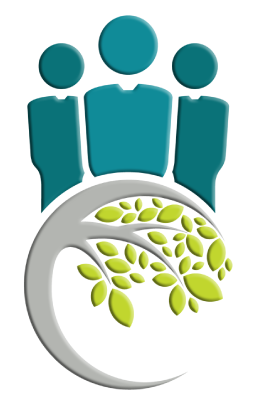National Caregiver Month
November 2022
“I like to say there are only four kinds of people in the world. Those who have been caregivers. Those who are currently caregivers. Those who will be caregivers, and those who will need caregivers.” — Rosalynn Carter
November is National Caregivers Month. Most likely, you either know a caregiver or have been one yourself. By virtue of our work, we interact with them almost daily. In the grief world, we often comment on the bravery and difficulty of being a caregiver, as well as affirm all the feelings it may evoke. Caregiving can be exhausting, frustrating, sad, confusing, and rewarding. Under the best of circumstances, challenges will surface, and regardless of the spousal vows of “in sickness and in health”, or as a parent, child, sibling, or friend, there really is no way to grasp the vastness of this bittersweet gift. How can it be a gift, something that is so potentially painful? How is it rewarding? Every day, caregivers speak to doing things they never thought themselves capable of; changing briefs, administering medicine in the middle of the night, providing a bath or shower, arranging doctor visits, chauffeuring, cooking a meal that might have two bites taken, making decisions in the best interest of a loved one…all with very little sleep or self-care, as is often the case.
It is not uncommon, especially when sleep-deprived, to hang out on the hamster wheel of “Did I do all that I could”? Would one more fluff of a pillow, one less sharp answer given out of tiredness, one more pain medication, one more cool cloth, or doctor’s consult made a difference? Would any of those have been the magic formula to keep someone here, amid a terminal illness? And, even if so, there is the seeking of balance between not wanting to let someone go and not letting them suffer. It’s a constant recalibration.
Jennifer O’Brien, friend to Arkansas Hospice and a new board member, kept a journal as she cared for her late husband, Dr. Bob Lehmberg, who was a well-loved hospice and palliative care physician. That journal became “The Hospice Doctor’s Widow”, a book that has garnered attention for its wise counsel for caregivers. It addresses the concept of “precious time”, anticipatory grief for caregivers, the survivor’s journey, advice for caregivers, and a peace toolkit as a guide for end of life. It can be a valuable resource and gift for a caregiver you may know, or for yourself. www.hospicedrswidow.com.
Caregivers face fatigue and burnout and there may be serious health consequences. It is often remarked that at the end of the day, a caregiver is at the bottom of the list. How can we support someone who is providing care to another?
- An encouraging note or card acknowledging the hard work they do for others.
- A gift card for coffee or some other kind of treat.
- A subscription to a meal delivery service or the coordination of a food/helper train.
- A gift card to a spa.
- Running errands, providing respite, offers to drive to medical appointments, sporting or school events, the veterinary, etc.
- Holding space with the loved one so the caregiver can nap, do their own errands, or just enjoy some time away for coffee or a movie.
- Learn about the challenges caregivers face and invite them into a conversation about it. Caregivers often feel quite alone and unseen, and your support and tangible efforts can make a significant difference.
And since we on the Employee Wellness Committee focus on wellness, let’s not forget self-care amidst what we do for others. It is OKAY to do for yourself that you would do for another who needs support. In fact, that is where it should begin. When we nurture ourselves, we are more able to care for others.
This month, we celebrate ALL the caregivers we know, and that includes you.
Be Well …

Arkansas Hospice Employee Wellness Council (EWC) Keeping you Well – Mind, Body, & Spirit
CLICK HERE to reach us!


 Registered 501(c)(3). EIN:
Registered 501(c)(3). EIN: